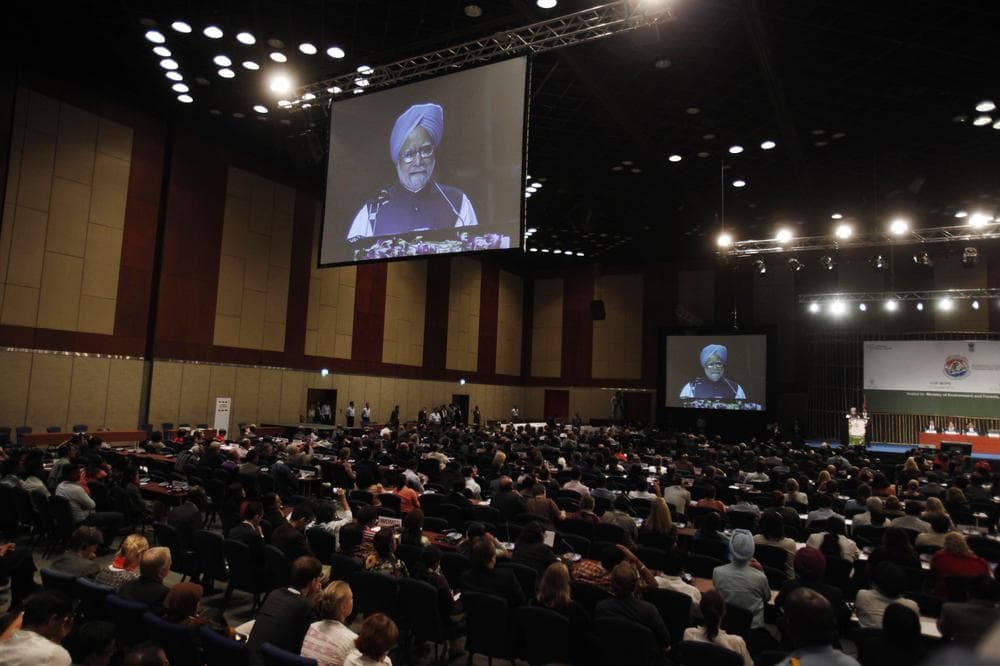Advertisement
The Role Of Museums In The Public Understanding Of Science
In Brazil and Japan, people who just days before said they knew almost nothing about biodiversity now overwhelmingly declare that they are “concerned” about threats to the diversity of life on Earth. In Minnesota and California, nonscientists discuss the finer points of nanotechnology and share “nano haikus.” And in North Carolina, laypeople play a card game with geneticists to learn about genomic research.
What do these diverse developments have in common? Science museums.
In an age when rapid advances in science and technology can pose increasingly challenging questions for experts and ordinary citizens alike, science museums provide a neutral meeting ground to tackle these questions together. Questions like: Should parents be allowed to choose their baby's sex? What tradeoffs are we willing to make to ensure a safe, sustainable food supply? Should we develop offshore wind farms?
These are scientific questions – but not just scientific questions. And so museums are moving beyond their traditional role as repositories of precious fossils to engage visitors in developing the critical thinking skills necessary to tackle socio-scientific issues. In experimental forums, structured conversations and interactive exhibits, museums guide visitors as they learn to distinguish between science- and value-based claims, and as they discover how to combine personal experience with scientific data to articulate their views.
Museums are moving beyond their traditional role as repositories of precious fossils to engage visitors in developing the critical thinking skills necessary to tackle socio-scientific issues.
And the results? Led by science museums, universities, research institutes and other institutions, those ordinary citizens in Brazil and Japan – along with about 3,000 others in 23 countries around the world – pored over and discussed information on biodiversity, voted on their answers to questions about it and made recommendations. Their recommendations were then presented, earlier this month, to the United Nations Convention on Biological Diversity in Hyderabad, India – a remarkable instance of citizen participation in a global policy discussion of historic importance.
As for nanotechnology, which one survey says roughly 4 in 5 Americans know almost nothing about, eight science museums have banded together in the Nanoscale Informal Science Education Network. Nanotech, in which scientists manipulate matter at the atomic level to create new materials, has a wide range of potential applications, in everything from medicine to energy production. But since these tiny engineered particles have new properties, nanotechnology offers not only potential benefits but also unknown risks. The kind of public education and outreach that the Network provides is designed to prevent misconceptions and address regulatory issues.

Informed decision-making about genetic research is just as critical. But I wonder how many people know that a 2008 law protects them from being treated unfairly by their employer or health insurer because of genetic information? They will learn this and other facts by playing Genome Diner, the downloadable card game developed by Duke University with the Museum of Life and Science in Durham, N.C.
Important as genetics and nanotechnology are, however, I can't imagine a more potentially volatile public issue than a natural disaster. And here too a science center is taking the lead in educating the public. After floods devastated Pennsylvania's Lehigh Valley from 2004 to 2006, Easton's Nurture Nature Center brought together diverse residents in three of the hardest-hit areas. They learned to apply new knowledge about the science behind flooding.
We’re just starting to figure out how to gather people together to address the many dilemmas created by the often unintended impacts of science and technology. But this is vitally important work. If we are to find solutions to climate change, health care and other challenges, we need scientists and everyday citizens who can understand the issues and talk with each other. Science museums can help.
This program aired on October 29, 2012. The audio for this program is not available.